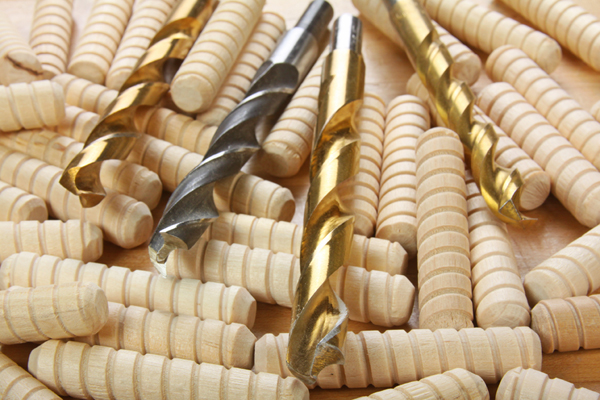
I recently bought a new package of 3″ long by 1/2″ fluted dowel pins to repair an old door, but they kinda fell flat … on the floor. The last dowel of the old package (kept in the basement) fit into a 1/2″ hole with a little glue and a few gentle hammer taps. The new ones would fall right through even with a lot of glue. I drilled some test holes with four different 1/2″ drill bits: Forstner, spade, brad point, and even a metal bit; all of them produced holes too large to hold the dowel pins snugly. Is this just a case of the low humidity of a Colorado summer or I am using the wrong bit size? – Daniel J. Dailey
Rob Johnstone: Well, something is the wrong size here. From what you described, I would blame the dowels. As you implied, low humidity can cause hardwood to shrink — but you can check that by looking at the end of the dowels. If they have lost a bunch of moisture since they were milled, they will be oval if you look at them from the end. Even so, I would be surprised if a quality dowel could shrink enough to “fall through” a half-inch boring!
Chris Marshall: And if those new dowels are, in fact, round when you look at their ends, I would start searching for a smaller, fractional bit with which to bore the insertion holes. Your new pack of dowels are just plain undersized. Maybe 15/32” or 29/64” would give you the snug fit you need. There may be a dowel manufacturing problem to blame here. I’ve discovered variations in consistency with dowel sizing, too. Good thing a myriad of drill bit sizes can come to our rescue in situations like this.





